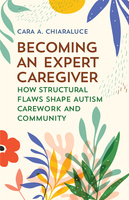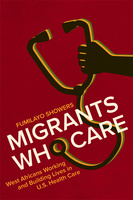Becoming an Expert Caregiver
How Structural Flaws Shape Autism Carework and Community
This book features the voices of 50 primary caregivers of autistic and neurodivergent children who illuminate the process through which lay women become expert caregivers to provide the best care for their children. Expert caregiving captures an intensification of traditional family carework – meeting dependents’ financial, emotional, and physical needs – that transcends the walls of one’s private home and family and challenges the strict boundaries between many worlds: lay and professional, family and work, private and public, medical and social, and individual and society.
Decentering Epistemologies and Challenging Privilege
Critical Care Ethics Perspectives
This book discusses the ways care ethics contributes to the decentering of dominant epistemologies and to the challenging of privilege, and considers how to decenter care ethics itself via an encounter with non-Western philosophical traditions and alternative epistemologies. Written by scholars from different countries, disciplines and intellectual traditions, the volume offers original care ethics contributions on epistemic injustice, privileged irresponsibility, ecofeminism, settler colonialism, social movements such as BLM, and on various racialized and gendered inequities tied to care work.
Decentering Epistemologies and Challenging Privilege
Critical Care Ethics Perspectives
This book discusses the ways care ethics contributes to the decentering of dominant epistemologies and to the challenging of privilege, and considers how to decenter care ethics itself via an encounter with non-Western philosophical traditions and alternative epistemologies. Written by scholars from different countries, disciplines and intellectual traditions, the volume offers original care ethics contributions on epistemic injustice, privileged irresponsibility, ecofeminism, settler colonialism, social movements such as BLM, and on various racialized and gendered inequities tied to care work.
Migrants Who Care
West Africans Working and Building Lives in U.S. Health Care
As the U.S. population ages, and as health care needs become more complex, demand for paid care workers in home and institutional settings has increased. Migrants Who Care draws attention to the reserve of immigrant labor that is called upon to meet this need, telling the little-known story of a group of English-speaking West African immigrants who have become central to the U.S. health and long-term care systems.
From Crisis to Catastrophe
Care, COVID, and Pathways to Change
The COVID-19 pandemic has shaken the material and social foundations of the world more than any event in recent history and has highlighted and exacerbated a longstanding crisis of care. While these challenges may be freshly visible to the public, they are not new. Over the last three decades, a growing body of care scholarship has documented the inadequacy of the social organization of care around the world, and the effect of the devaluation of care on workers, families, and communities. In this volume, a diverse group of care scholars bring their expertise to bear on this recent crisis. In doing so, they consider the ways in which the existing social organization of care in different countries around the globe amplified or mitigated the impact of COVID-19. They also explore the impact of the global pandemic on the conditions of care and its role in exacerbating deeply rooted gender, race, migration, disability, and other forms of inequality.





